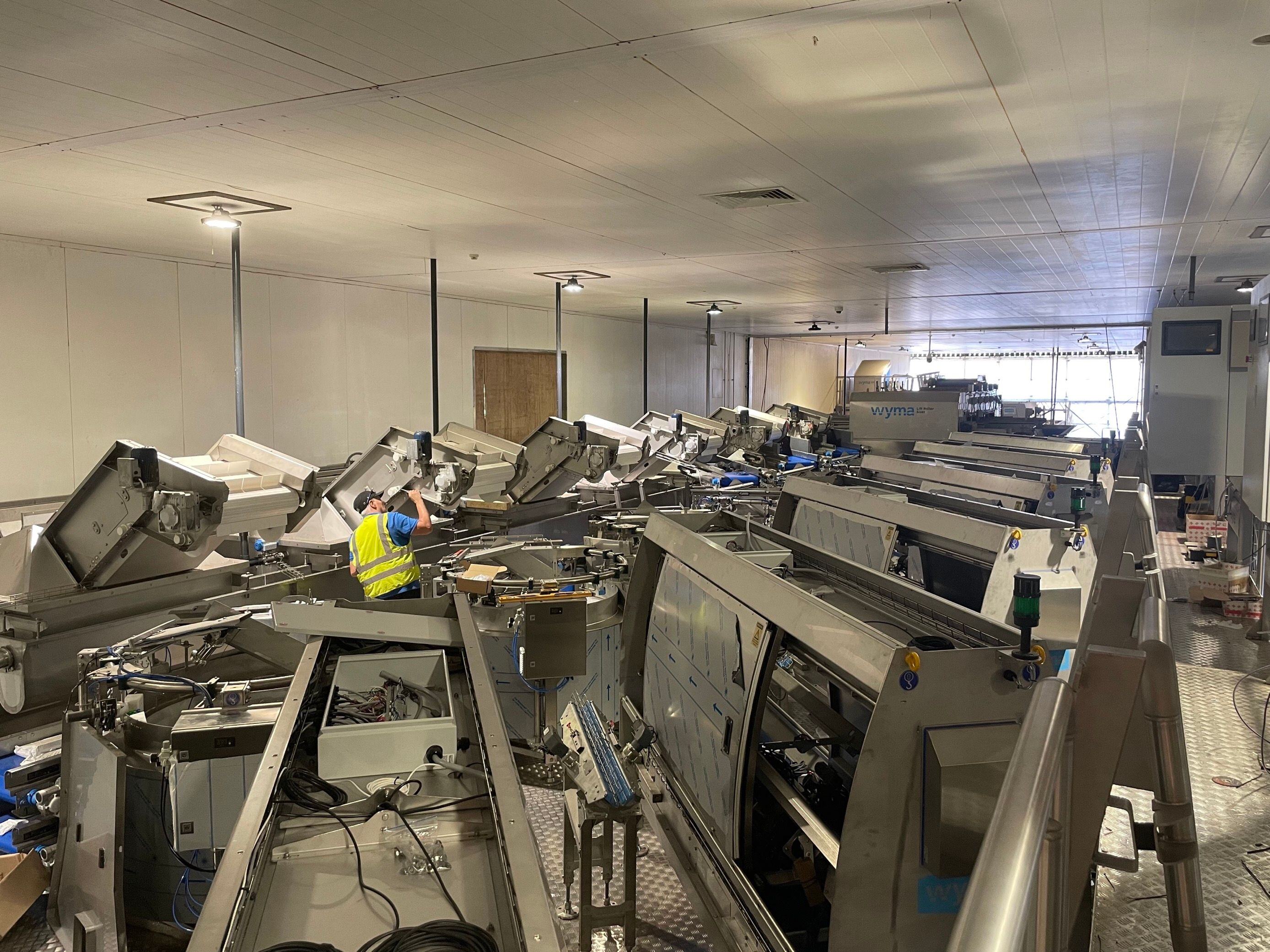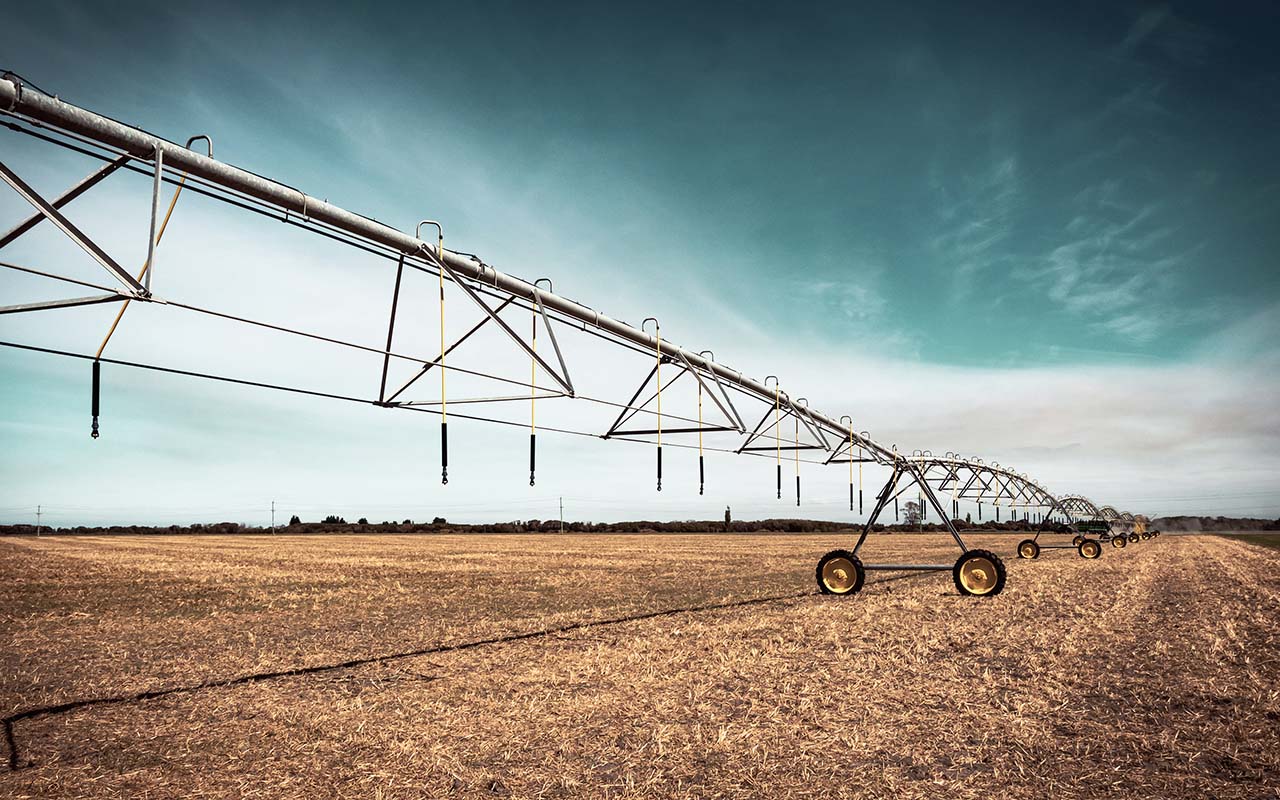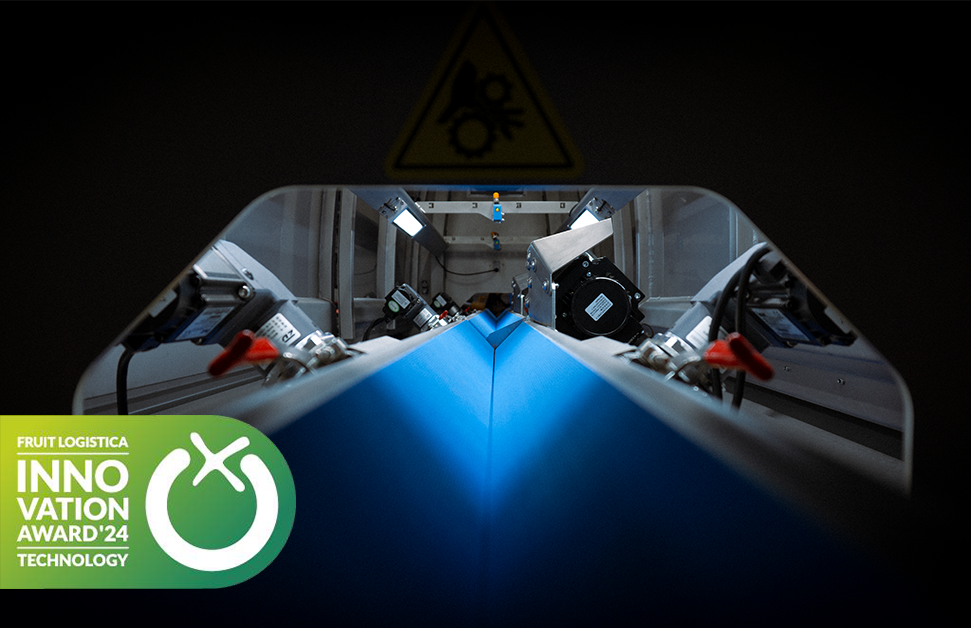Home / Latest Posts / How to maximise the life of your vegetable handling equipment
How to maximise the life of your vegetable handling equipment
Investing in pack-house equipment usually means a notable cash outlay for any grower, packer or processor. With very little effort you can look after your equipment to maximise its return and prevent downtime during packing season.
Clean
Most pack-houses deal with large amounts of dirt, grime and soil. If dirt is left to dry and harden on equipment, it builds up and becomes more difficult to remove. This increases equipment stress and component wear. Over time, it can also affect operation and make maintenance difficult.
Inspect
Cleaning your equipment regularly is important. As well as using in-built cleaning systems (e.g. cleaning bars, Clean-In-Place programs, cleaning rollers etc), hosing down or manual wiping are the simplest and most effective ways to keep your equipment clean.
Wyma does not recommend aggressive cleaning agents (e.g. caustic soda or similar products) to clean your equipment, as they damage seals and reduce the life of critical parts.
Protect
Some vegetable effluent can be quite corrosive. Exposure to moisture (rain, dew, condensation, high humidity, etc) can also cause atmospheric corrosion.
Wyma recommends anti-corrosion barriers like water repelling or wax spray (e.g. LPS3 corrosion inhibitor or CRC Softseal corrosion inhibitor) to protect internal and external components against rust and other corrosion. Apply this around panel work, fasteners, spline shafts, drive and return shafts where bearings and pulleys are located and to other parts that are exposed to corrosion.
Take care not to spray certain parts before assembly as slippage may occur. Avoid direct exposure to rain and make sure your pack-house has good air flow to minimise the negative effects of moisture.
Lubricate
Wyma recommends high quality lithium-based grease. Food grade grease does not offer the same lubrication quality as other greases. If you must use food grade grease, maintenance intervals must be increased. Lubrication reduces friction, allowing smooth movement of parts. Maintain a film of oil or grease on every part that needs lubrication so metal resistance and surface damage are minimised. Not lubricating may result in overheating of metal or other parts, creating part failure and equipment damage.
Your Wyma User Manuals have a list of parts that need greasing plus a service and maintenance schedule with recommended greasing intervals.
Use It Wisely
Parts last longer when they are not under stress, especially engine parts, transmissions etc. Stress is caused by overloading, excessive use or changes in speed or environment (e.g. cold start after a long shutdown).
Stress can cause early wear and/or motor drive faults. Maximise equipment life by staying within the load and speed ranges specified for your equipment. Turn equipment on occasionally during long shutdowns.
And Also
Be Safe
All equipment maintenance must be carried out following all the safety guidelines in your Wyma User Manuals, as well as all applicable local and international laws. Make sure equipment is off and locked out.
Read your Wyma User Manuals
Wyma’s technical documentation is often used as a reference in the industry for its quality. Each manual includes eight sections; Introduction, Safety, Technical, Installation & Commissioning, Operation, Trouble Shooting, Maintenance and Spare Parts. They provide detailed procedures and timing of the above mentioned actions.
Ask Wyma
Wyma’s After-Sales service and spare parts team remains available for any technical support you may require. To contact Wyma’s after-sales team, please refer to our offices’ contact details or complete an enquiry form.
Remember
Regular cleaning and maintenance allows you to find and solve problems early (e.g. damaged parts, leaks, etc) so they do not force a shut-down and become expensive to fix.

Innovative vegetable trimmer installation nearing completion
Frederick Hiam Foods has invested in six Roto-Cut Trimming systems and six Produce Singulators which make up the core of their new high efficiency automated parsnip processing line.

Sustainability in the pack-house
The world’s food production industry sits at a difficult crossroads. By 2050, the global population will likely increase by 35%, and food production will need to double in that timeframe. However, as our climate changes and resources become scarcer,

People of Wyma: Matthias Kerkmann
As Wyma has grown and evolved, the projects we work on have become increasingly more complex. Developing processing line solutions capable of dozens of tonnes per hour requires a high level of innovation, collaboration and commitment.
-
 Fortifi launches Global Food Processing Solutions groupApril 2, 2024
Fortifi launches Global Food Processing Solutions groupApril 2, 2024 -

-
 Revolutionizing Agriculture: Optical Roto-Cut Nominated for FLIADecember 13, 2023
Revolutionizing Agriculture: Optical Roto-Cut Nominated for FLIADecember 13, 2023

